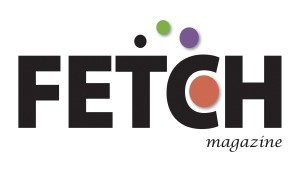Q & A with Trainer Judith Fischer, APDT, IAABC
Regardless of your past, you are still a Rockstar—or at least that is the mantra of Judith Fischer, dog trainer and owner of Agility Possibilities, LLC. Fischer went from showing and titling several breeds to finding her true life’s purpose in agility training. She has lived and breathed dogs for 45 years and upon rescuing a Bloodhound girl named Sarah, Fischer was able to develop a fondness for special needs training.
“Sarah Louise opened my eyes and heart to working with dogs with special needs. While we recently lost our Sarah … it was through watching her reconnect with life and enjoy being with other dogs and people that I am now able to better teach others how their dogs best learn regardless of what their past held,” Fischer emphasizes.
How do you train a dog with special needs?
All our training classes are designed with the dogs best interest in mind. I incorporate fun obstacles so every dog or owner, despite limited ability, is still able to take to the course and enjoy learning together.
Agility as a competition sport is awesome to watch! Often we watch these dogs, muttering under our breath, ‘my dog, or I, could never do that!’ Yet, all dogs can train and benefit from the sport of agility. The challenge is not if our special needs dogs can navigate the obstacles but how we are going to train them to do so. In training with handicaps, ours or theirs, we need to focus on what we can do, rather than what we can’t. Sometimes the criteria we deem as insurmountable needn’t even be part of the equation. Dogs are very resilient and receptive to trying and learning new things. They aren’t worried about what others will think or say they just go about enjoying life and trying to get the most out of each day. We could learn A LOT from our canine counterparts.
All dogs’ first language is scent; depending on their breed-inherent traits, they may carry a double major in scent (as my Hounds did) or be more visually acute. Perhaps they were originally bred to work following hand cues or subtle body cues. All this comes into play when training dogs. A special needs dog may just have a shorter list from which to choose. That just means you both have less to learn! Less is more. Less distraction or involvement can equal greater attention and focus to the task at hand (or paw). I have seen and worked with deaf dogs that blow the others away on course since they are not distracted by sounds, having been taught to follow visual cues. I have also worked with blind dogs that did extremely well in having specific scents to direct or redirect during training. I see these as all positive training behaviors not just for agility but in life. In working with how we each learn best, together we receive greater results in establishing a bond built on trust, respect and love.
Benefits?
Agility is an all-encompassing training medium for dogs and their owners that exercises the mind and body. It teaches or helps redirect the dog’s impulse control while being off leash. I have worked with many a dog that is more receptive to learning basic obedience or manners skills if they get to burn off some pent up frustration by going over a jump or racing through a tunnel as part of training.
A few of my students refer to agility class as ‘fun school.’ I like that! Most dogs already know how to run and jump. Incorporating what you and your dog enjoy doing together at home in a structured class format is a great way to work on their social skills. Many owners have made great human friendships as well and attending class is a great social outing for them. Through my decades of working with people training their dogs, I have been fortunate to work with and learn from those with what we call handicaps. In treating them with the respect they deserve, at times modifying my approach or setup, I have found through acceptance, there are no real handicaps, just obstacles we all encounter and have to learn from.
Why do you do it?
In agility training, we are able to release our inner puppy—enjoy life and laugh at ourselves since our dogs do humble us. We learn to connect with others not based on social status but through our common interest—dogs. I love being able to provide safe, fun, educational and recreational training for dogs and owners. I enjoy watching owners learn from their dogs and work towards a mutually beneficial goal. That’s what it is all about to me: watching dogs teach their owners that while life presents many challenges, they can be overcome by working and learning together.










